Table of Contents
Whipping up a pregnancy smoothie is a delicious, nutrient-dense option, especially when you’re feeling nauseous or experiencing pregnancy-related food aversions. Give these delicious, dietitian-approved smoothie recipes a try!
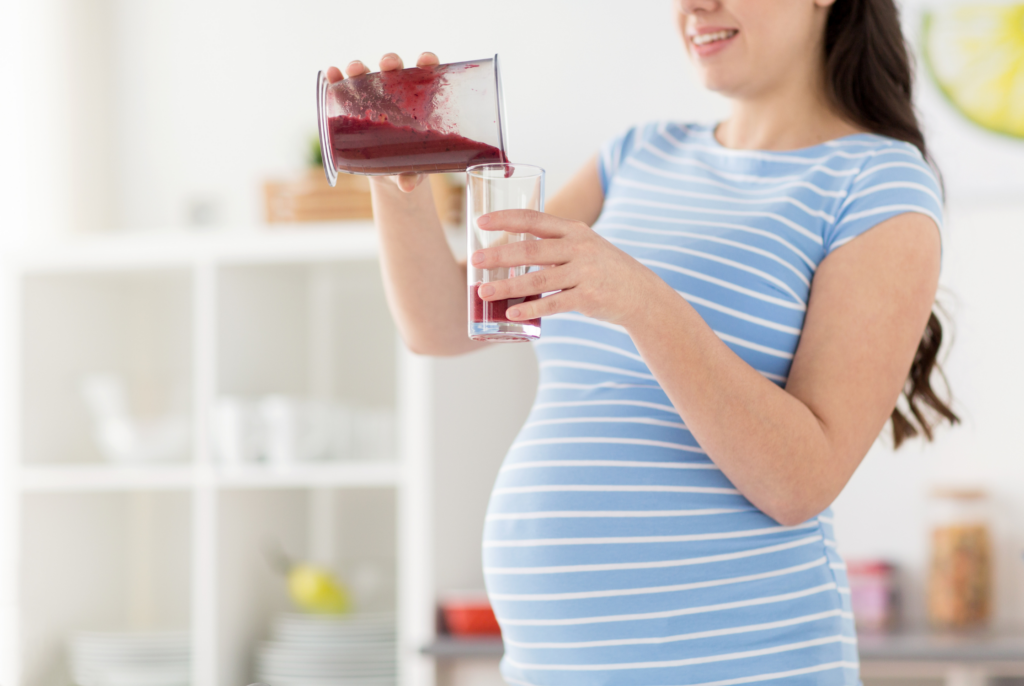
Smoothies were definitely an easy “go-to” meal option during my all of my pregnancies! In fact, they’re one of the best foods for a healthy pregnancy in my mind, because they’re both nourishing AND hydrating. Smooth, creamy, cold and delicious, smoothies are an easy way to enjoy a variety of nutritious ingredients all blended together, either as a meal or a snack. As a registered dietitian and mom of three, I love the fact that smoothies are so nutritious (and, by the way, fun for kids too!), but I also love that they’re so easy to throw together and take on the go.
Why are smoothies good for pregnancy?
They are easy to make
Smoothies are a perfect snack or meal option to boost your protein, vitamin and mineral intake during pregnancy, with minimal prep time required! If you are experiencing nausea and/or vomiting during your pregnancy, quickly blending a smoothie may feel less intimidating than cooking a regular meal. Pregnancy nausea is commonly triggered by the smells of cooked food, so making cold smoothies (that only have a subtly sweet aroma) tend to be much more appealing.
They are easy to digest
Since smoothies are blended into a thick liquid consistency, your body doesn’t require as much effort to digest and absorb it compared to chunks of solid food. It also travels through your digestive system more quickly, emptying from your stomach into your small intestine where you can start absorbing valuable nutrients in no time! This is a clear benefit during pregnancy when bloating, heart burn and early satiety are commonly experienced (especially during the 2nd and 3rd trimester when baby takes up more room pushing against your stomach).
They are nutritious, especially during pregnancy
Smoothies are uniquely nutritious for several reasons, which makes them a wonderful choice to include during pregnancy. Blending vegetables and fruit that are fresh or frozen at peak ripeness infuses the smoothie with vitamins, minerals, fibre and phytonutrients essential for the health of both mom and baby. Smoothies often include milk (plant-based or not) which not only hydrates the body, but provides vitamin D and calcium. Nuts, seeds and other essential fats are often added to smoothies, which help to satisfy a hungry tummy, and nourish baby’s developing brain.
The best thing about smoothies is that they are completely customizable so you can change the flavor and nutrient profile by switching up its ingredients! With little prep, and easy delivery, you can enjoy a nutrient dense meal or snack without even having to chew! (Which is ideal for the nauseous expecting moms out there)
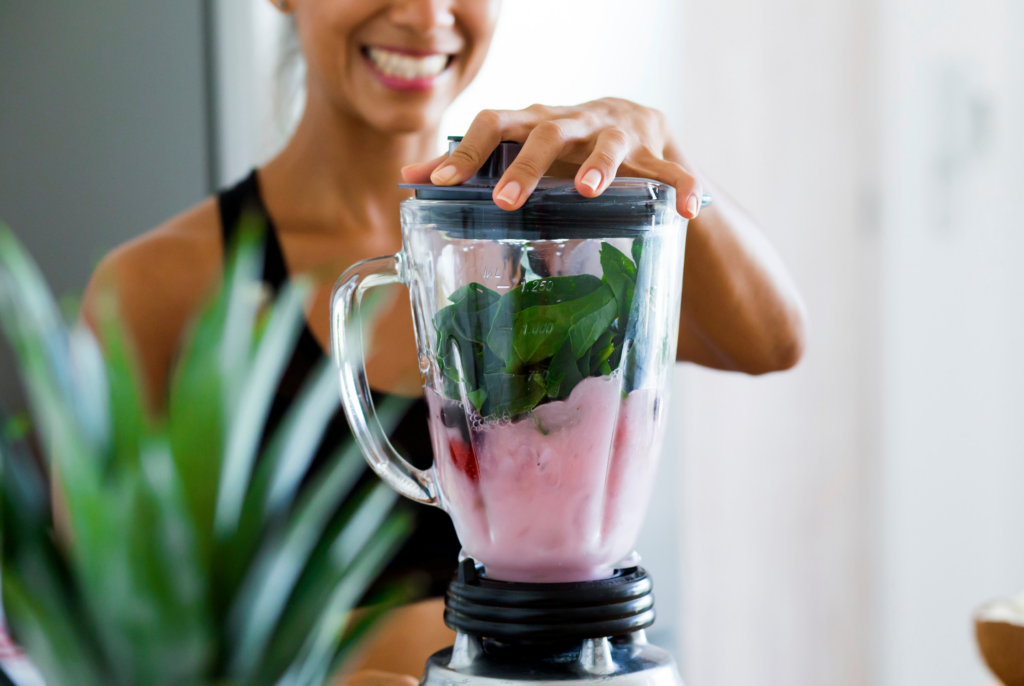
What to include in smoothies for pregnancy (and why):
Protein-rich foods:
It is important to include protein-rich foods such as nuts/seeds, nut butters, Greek yogurt, cottage cheese, hemp hearts, soft tofu, soy milk, cows’ milk etc. to your pregnancy smoothie because they provide the tiny building blocks of all life: amino acids. The reason your protein needs are higher during pregnancy is to support the growth of both your body and your baby’s body during this incredible life-giving journey! If you prefer adding protein powder to your smoothie, keep in mind that all protein powders available on the market are not created equal. Some are regulated for safety and quality of ingredients while others are not. Refer to the FAQ below to find out more about how to choose a protein powder that is right for you.
Dietary fat:
The fats and oils that you add into your pregnancy smoothie (i.e., nut butters, hemp hearts, chia seeds, flax seed, avocado etc.) will not only add creaminess and keep you satisfied for longer; they will also help you to better absorb the fat-soluble vitamins like A, D, E, and K! Getting enough of these vitamins during pregnancy is key to the healthy development of your babies’ eyes, bones, blood clotting ability and immune function. The nutrient Folate is also abundant in nuts/seeds, and avocado (as well as leafy greens and some fruits!), which is a B vitamin that is very important during pregnancy, because of its role in forming the neural tube (which later turns into babies’ brain and spine).
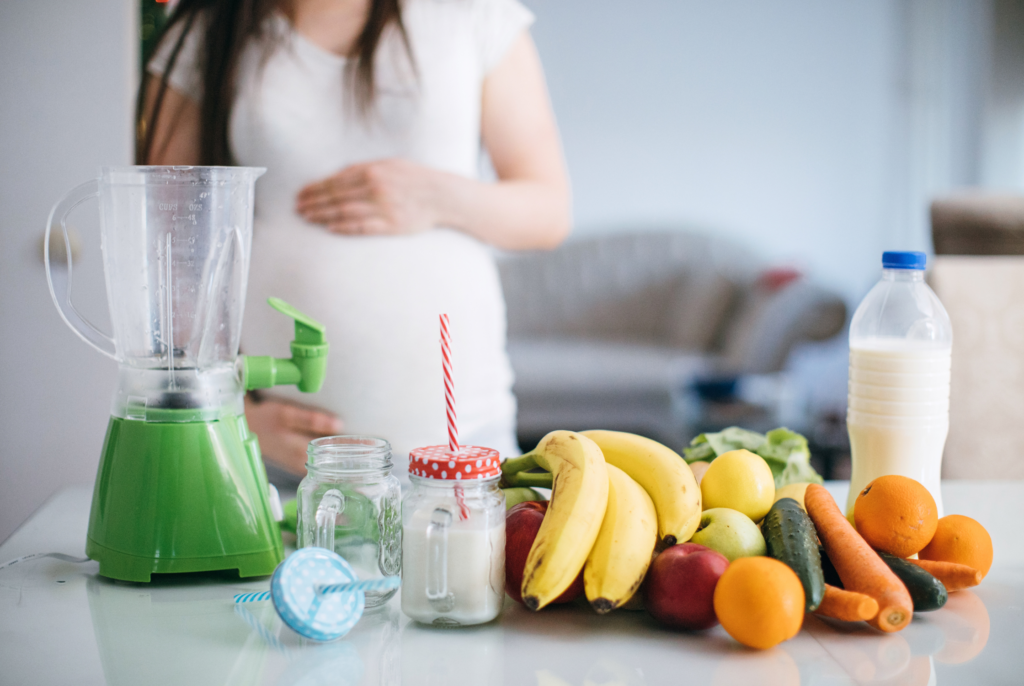
Fruits and/or veggies:
Fruits and vegetables add a wide array of vitamins, minerals, fibre and phytonutrients to smoothies. These nutrients are important for maintaining a healthy immune system, reducing inflammation, and promoting regular digestion while growing a tiny human. Micronutrients from veggies and fruit are also essential for the growth and development of baby. Dark leafy greens and fruits high in vitamin C such as strawberries, mango, oranges, pineapple, and kiwi are a nutritionally strategic combination to add to a smoothie. The leafy greens (such as kale or spinach) contribute both folic acid (important for baby’s neural tube development) and iron (important for moms growing blood volume). The vitamin C from the fruit helps the body absorb and use this plant-based iron more effectively!
Liquid:
A key benefit of including smoothies during pregnancy is the hydration factor. An expectant mother has heightened requirements for fluid during pregnancy for a variety of reasons. Water plays a critical role in delivering nutrients to the developing baby, maintaining amniotic fluid levels, and supporting the rapid expansion of maternal blood volume. On top of this, getting enough fluid each day will help prevent dehydration, constipation, cramping and preterm contractions.
Smoothies offer another opportunity for pregnant women to achieve their daily fluid requirements! There are many liquid options to add to smoothies ranging from plant-based milks (soy, almond, oat, cashew etc.), cow’s milk, to 100% fruit juice, coconut water or just plain water! The options are endless. The liquid added to your pregnancy smoothie is another opportunity to add essential nutrients such as protein, vitamin D and calcium. Be sure to look at the nutrition fact label on plant-based milks, as many of them have little protein and may not be fortified with the above-mentioned micronutrients.
Without further ado, here are some healthy pregnancy smoothie recipes for you to try!
This creamy Banana Date Smoothie is jam-packed with fibre, protein, and, most importantly, yumminess! This kid-approved smoothie is nourishing enough to be meal-worthy!
This Chocolate Cherry Smoothie is healthy, delicious, vegan-friendly and kid-approved! It is made with six simple ingredients and is loaded with naturally sweet and tart flavors as well as nutrition!
This Mango Banana Coconut Smoothie is delicious, nutritious, balanced, kid-friendly, easy summer breakfast, lunch or snack option!
This meal-worthy smoothie is easy, nutrient-packed and delicious. Smoothies are a great meal choice for kids, because they’re so easy to make and they’re packed with nutrition. Bonus: your kids can help make them!
This triple berry smoothie is creamy, meal-worthy, and so nutritious. It’s packed with three different berries, 1 cup of Greek yogurt, spinach, hemp hearts, and more for a powerhouse breakfast smoothie or snack. Kids love it!
This refreshing and nutritious DIY mocha frappuccino smoothie will make you feel like you’re drinking the Starbucks version, only better and healthier!
FAQ about pregnancy smoothies:
It depends…not all protein powders are created equal. In order to be sold on the shelf in Canada, protein powders (or any other natural health product) must be licensed by Health Canada. If product is found to be safe, effective and of high quality “under recommended conditions of use” it will receive a natural health product number (NPN#) on the label. However, protein powders are often designed for athletes and those wanting to improve their sport performance. Meaning that the “recommended conditions of use” of most protein powders aren’t planned with pregnant women in mind.
In the US, protein powders are not regulated by the Food and Drug Administration (FDA), exposing the Canadian consumers to a slew of protein powders available online for purchase, that have little to no quality regulation or safety testing.
For the above reasons, I recommend that pregnant women choose protein powder brands that have been third party tested. NSF and Informed Choice are two of the most respected independent certification programs that test products for accuracy of ingredients/nutritional content, and screen for banned substances and contaminants like heavy metals, toxic chemicals and pathogenic bacteria. You will know your protein powder is third party tested if it has the NSF logo or informed choice check mark on the label.
Keep in mind that if you regularly add whole food sources of protein in your smoothie recipes, protein powder is not nutritionally necessary. However, if you enjoy the taste of your protein powder, or find you need that extra protein powder boost to satisfy your hunger, by all means add a scoop in!
I do not recommend adding powdered greens to smoothies while pregnant. Powdered green supplements most often have high amounts of added vitamins, minerals, and antioxidants, making them almost like a “super-charged” multivitamin supplement. While this may sound like a good thing, it can actually put you at risk for overdosing on certain micronutrients. Consuming too much vitamin A during pregnancy, for example, can cause miscarriage or have teratogenic effects (leading to malformations or birth defects) on your developing baby.
After third party testing, some powdered green products have been found to contain heavy metals such as lead and arsenic, posing a health risk to both mom and baby. Herbal extracts and other ingredients in powdered greens may also cause diarrhea or constipation, and (although rare) can trigger allergic reactions.
Collagen is a family of proteins derived from animals’ (such as chicken, cows, and fish) that are then broken down into peptides (smaller digestible form of collagen) and sold as a powder. There is not enough research looking at collagen supplementation during pregnancy to know if there is any benefit beyond eating enough whole food protein sources. However, if your collagen protein powder is third party tested (like mentioned above in question 1) with its safety and quality and purity of ingredients guaranteed, then its likely safe to add to your pregnancy smoothies. When it comes down to it, collagen powder is just another version of animal-based protein powder.
Unpasteurized fruit juice or dairy products (milk, yogurt, cottage cheese), and raw sprouts of any kind are more likely to contain bacteria that cause foodborne illness, especially during pregnancy when your immune system is compromised. You can of course continue to add the pasteurized versions of these products to your smoothies! It’s also a good plan to thoroughly wash fresh produce before adding into your smoothie to rinse off any bacteria or impurities.
Pregnant women should avoid adding herbal ingredients to smoothies due to lack of evidence around their safety during pregnancy. Some common herbal ingredients that have shown to have negative effects during pregnancy include gingko, ginseng, licorice (as a herb), kava, juniper, blue cohosh, calendula, and camomile. Bitter orange/orange peel, echinacea, peppermint, red raspberry leaf, rose hip, rosemary is safe to consume in a tea format during pregnancy (about 2-3 cups a day). However, supplements or extracts of these herbs should be avoided, as their side effects are not known in higher amounts and could cause potential harm.
Conclusion
Pregnancy smoothies are great because they offer a convenient way to pack essential nutrients, vitamins, and fibre into a convenient, delicious drink, supporting both the mother’s health and the baby’s development.
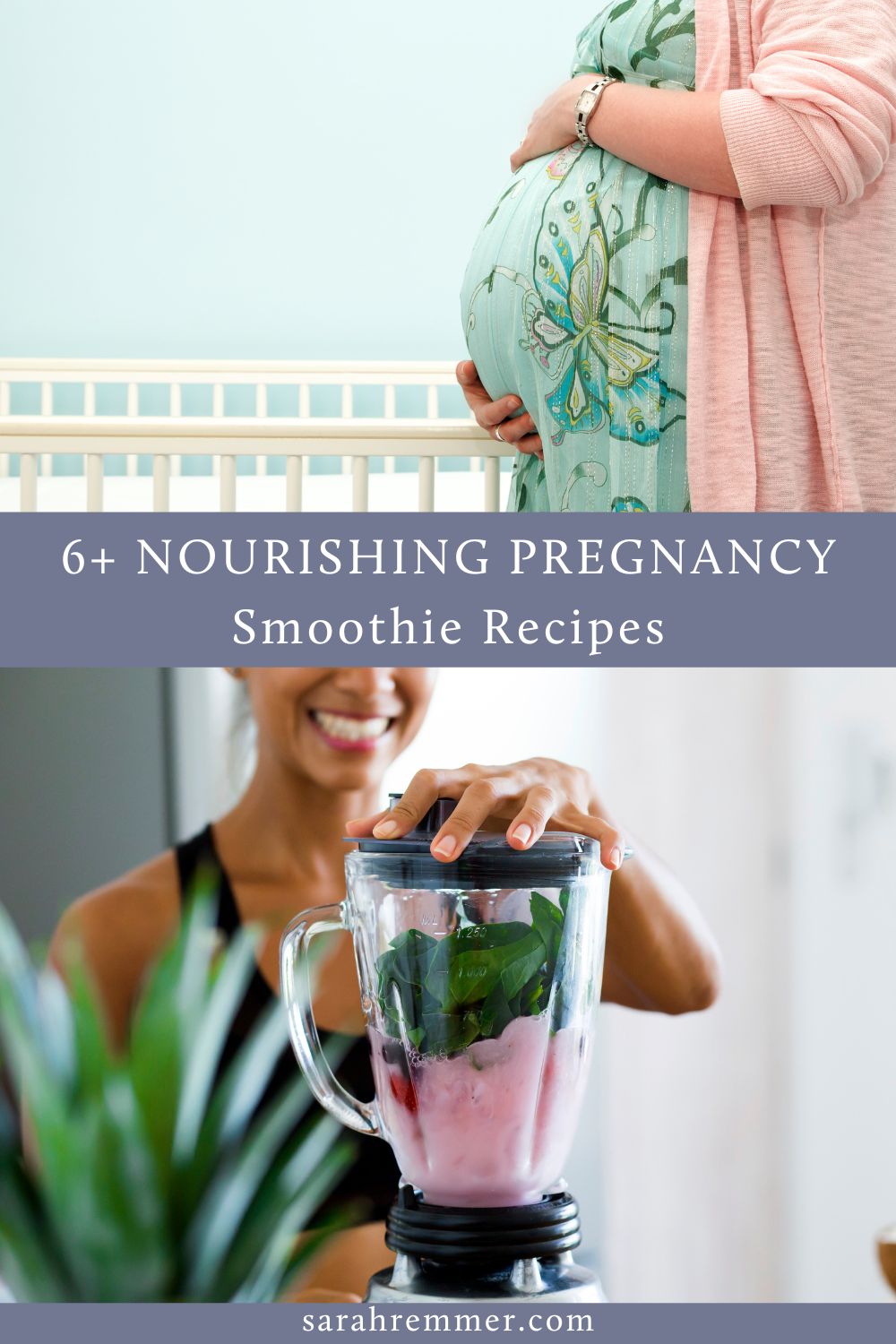

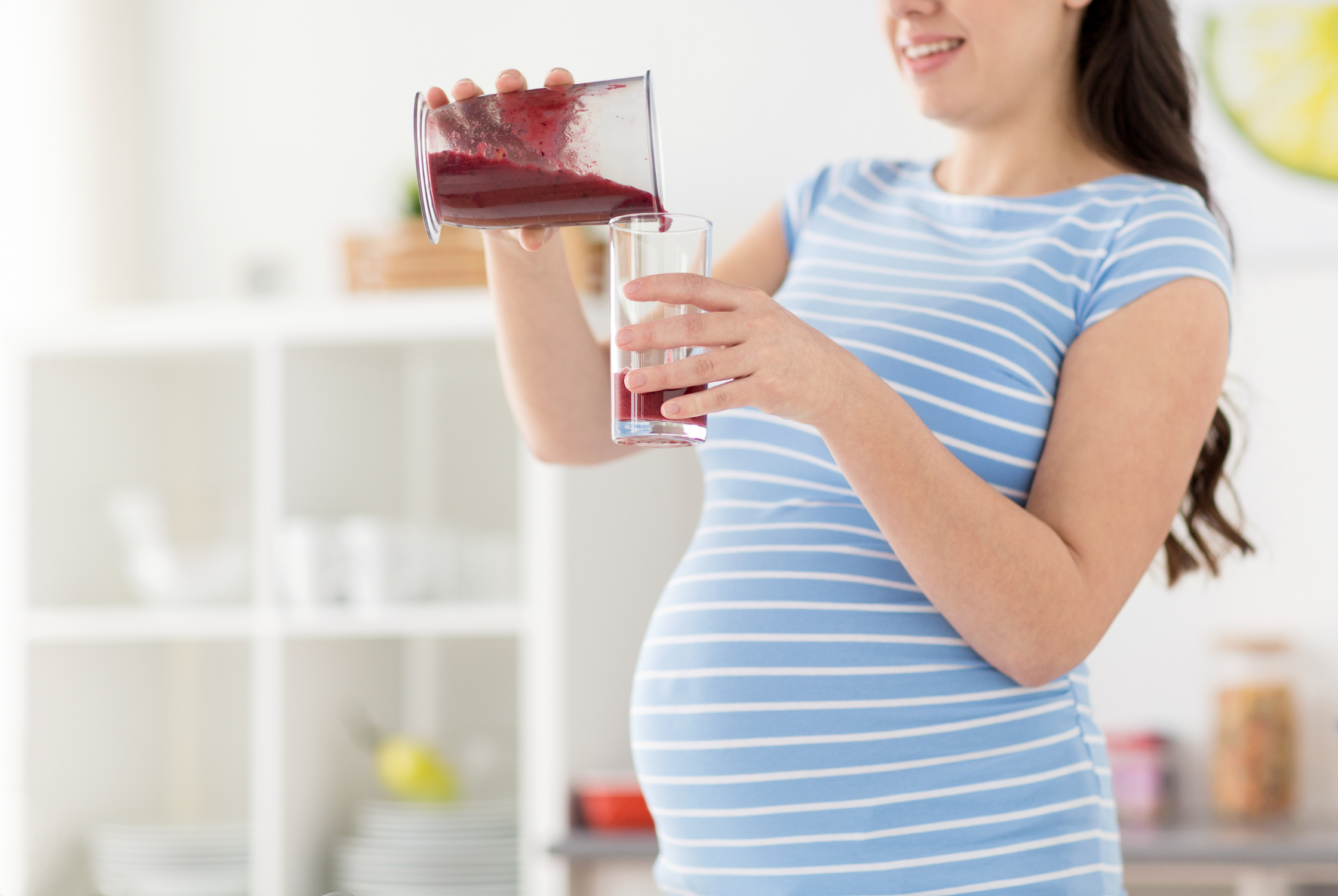

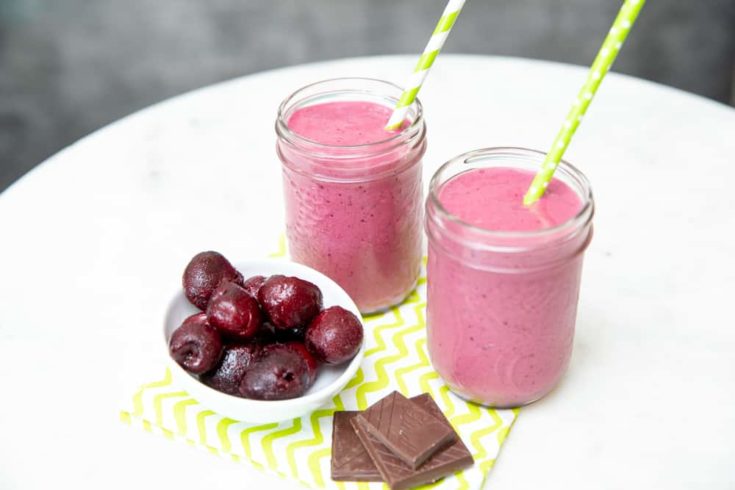
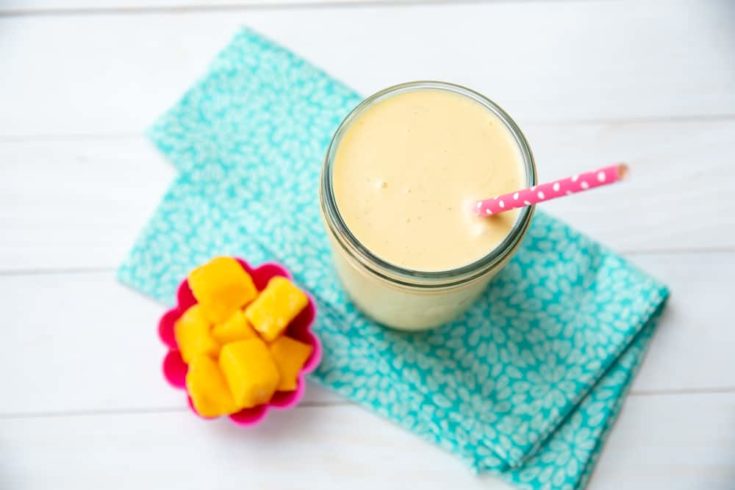
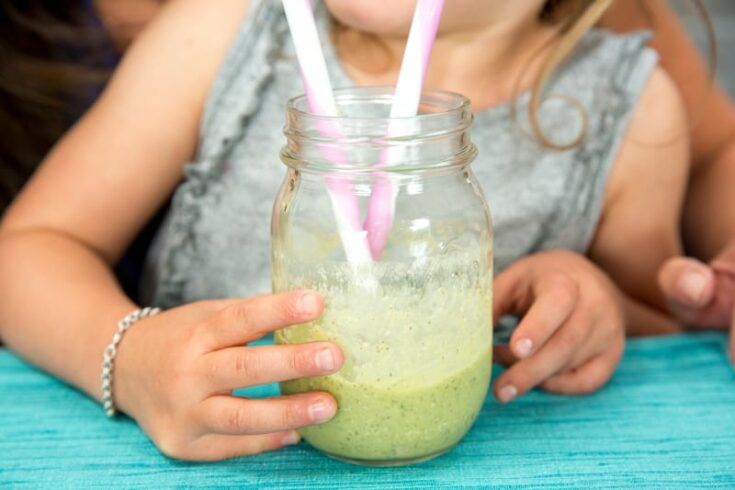
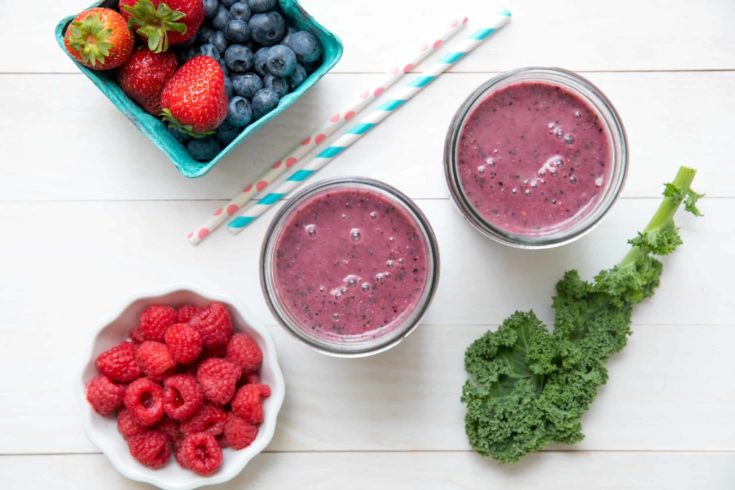
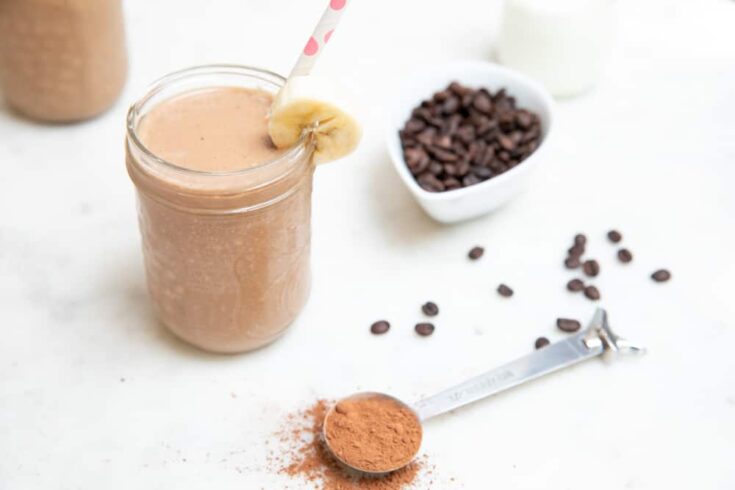



More Stories
Avocado Cacao Mousse – JSHealth
Janelle Brown on Garrison’s Mental Health Before His Death
How To Finally Beat Insomnia